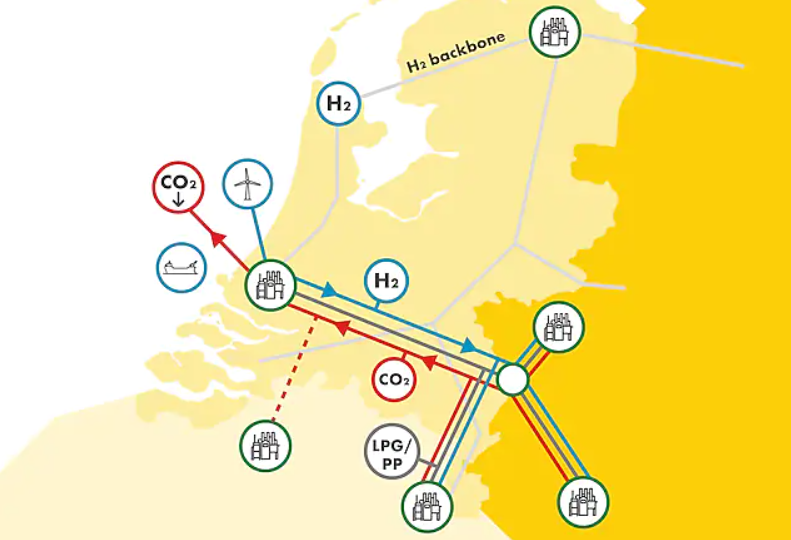The Netherlands – The Delta Corridor project, which consists of a bundle of four pipelines connecting the Rotterdam port, Chemelot, and the German Rhineland region, is being supported by the Port of Rotterdam Authority and cross-sector industry partners.
This project will provide access to clean hydrogen as well as capacity for carbon capture and storage (CCS), as well as a shift in pipeline transport capacity for propylene and LPG. With branches running the length of the corridor, the infrastructure will connect major inland industry clusters in the Netherlands and Germany. Access is a critical requirement for hard-to-abate industries in order to meet the EU’s 2030 climate targets.
Sense of urgency
As a result, the industrial parties will fully support the Delta Corridor, which will be built in a public-private partnership with governments and industry in both the Netherlands and Germany, with the goal of starting operations by 2026. The Delta Corridor is a significant step forward in the development of large-scale hydrogen infrastructure in Europe. Port of Rotterdam, Shell, BP, RWE, thyssenkrupp, LyondellBasell, HeidelbergCement, Attero, and Chemelot are among the companies that support the Delta Corridor project.
The Delta Corridor was listed on the Dutch government’s Multi-year Program Infrastructure Energy and Climate (MIEK) in November last year, recognizing the importance of infrastructure in meeting climate goals. The Dutch government is working on preparations for spatial planning procedures in collaboration with private partners and local governments such as provinces and municipalities.
In line with EU climate targets, the Northwest European industry has committed to a significant reduction in greenhouse gas emissions by 2030, which will necessitate increased energy efficiency and significant investments in bio feedstock, circularity, electrification, hydrogen, and CCS-solutions.
Abated emissions
The Delta Corridor project is the key to unlocking large-scale solutions for industry in Moerdijk, Geertruidenberg, Chemelot, and NRW’s industrial hubs (Gelsenkirchen, Cologne and wider areas). The Delta Corridor generates an annual contribution of around 22 million tons of avoided and abated emissions. Furthermore, connections to the Delta Corridor could provide deep decarbonization options in Belgium and Germany.
The Delta Corridor project is now entering a new phase, following initial feasibility studies by Chemelot, Rotterdam-Rhine Pipeline (RRP), and the Port of Rotterdam. A detailed feasibility study, which will be carried out by a consortium of companies, has been granted funding. The consortium will work closely with national governments and the EU. At a later time, the consortium partners will be revealed.





